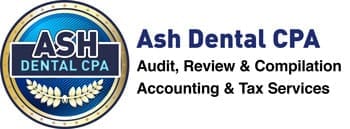What is the Difference Between Deductions and Credits?

Tax Deductions and Credits
Deductions and Credits
Now that we’re in a new year, you may have many things on your mind. If you’re a business owner, you may be concerned about taxes, as April 15 will be here before you know it. As you work on your taxes, you may see two terms pop up: deductions and credits.
Both decrease the amount of tax owed. However, they are not the same because they work to decrease your tax bill in different ways. There are some important differences between these two terms, and it’s important that you understand why they are different. They could help you in various ways come tax time, but you need to know how to best use them to your advantage and make sure you’re not missing out on a much-needed tax refund.

What is a Credit?
A credit is often seen as better than a deduction because a credit directly affects the amount of tax you owe. For example, credits are available for married couples, those with children, those who adopt, those who go to school, etc. The list goes on. If you receive a $5,000 credit, then you owe $5,000 less on your tax bill. It’s as easy as that.
Some credits can be refundable. For example, if you owe $3,000 but then have a $5,000 credit, you can reduce your tax liability to zero, and then receive the refund balance, meaning you would be owed $2,000.
What is a Deduction?
A deduction is different from a credit in that it does not directly lower your tax liability. Instead, it decreases your taxable income. However, by taking deductions, you can put yourself in a lower tax bracket and therefore owe less in taxes, which is how a deduction can be similar to a credit.
Unlike a credit, though, a deduction does not lower your liability by the full amount. If you have a $1,000 deduction, for example, and you’re in the 25% tax bracket, your liability will be reduced only by $250 rather than $1,000.
Deductions lower your taxable income, but unlike some credits, they do not allow you to get money back. However, deductions are versatile in that there are many ways in which you can use deductions. You can deduct education expenses, daycare, medical expenses, mortgage interest, and charitable contributions. If you own a business, you can deduct many other expenses as well, such as office supplies, equipment purchases, payroll and communication expenses. However, if you don’t have many deductions, then it may be better to take advantage of the standard deduction given to taxpayers.
Contact Ash Dental CPA
Tax law can be complicated. As a practice owner, your focus should be on increasing patients and revenue, not worrying about deductions and credits. Let the professionals at Ash Dental CPA take care of your tax woes. We can handle your taxes and accounting so you can focus on helping your dental practice grow. To learn more, call (508) 458-6789 or fill out the online form.
